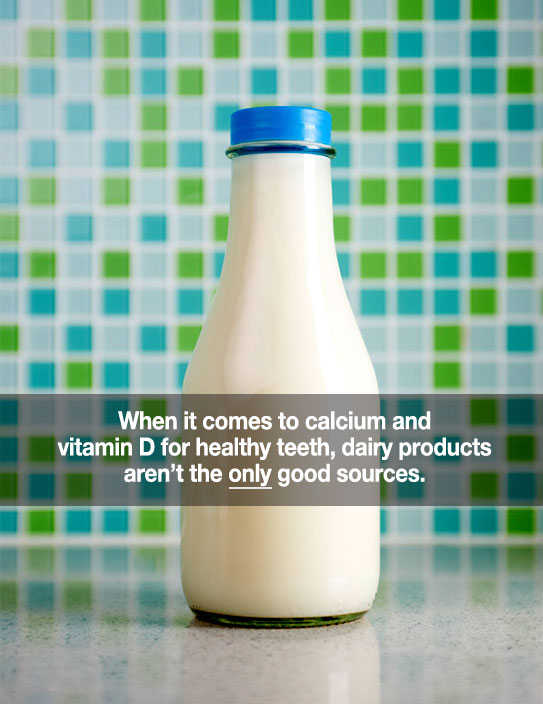Eat Right for Dental Health During Braces
September 29th, 2015

IT’S IMPORTANT TO EAT RIGHT to maintain the oral health of your teeth and gums. This is especially true during braces.
Eating Right Helps Fend Off Plaque, Gingivitis, And Periodontal Disease
A healthy diet will maintain healthy tooth enamel and prevent the formation of plaque, white spot lesions, and tooth decay. Eating the right nutritious foods will produce strong and healthy gums, and will help prevent gingivitis and gum disease.
Foods to avoid to maintain tooth and gum health include acidic drinks with lemon, soda, and candy. These can damage and erode your enamel making you prone to tooth sensitivity, decalcification, and cavities. Potato chips and cookies can contribute to tooth plaque. Be sure to brush and floss at least twice per day to prevent the unwanted dental effects of these and other foods.
“Super-Smile” Foods That May Surprise You
Healthy and nutritious foods for teeth and gums include those rich in calcium and vitamin D. Here is a list of foods considered extremely healthy for your teeth:
- Salmon- increases calcium absorption
- Broccoli- reduces acid erosion
- Onions- reduce bacteria
- Celery- massages gums, cleans teeth, produces saliva
- Apples- prevent plaque
- Kiwi- vitamin C rich to increase collegen for gums
- Paprika- high concentration of Vitamin C for gums
- Jello- collagen for healthy gums
- Carrots- prevent plaque
- Quinoa- contains vitamins and minerals
- Shiitaki Mushrooms- prevent mouth bacterial growth
- Sesame Seeds- clear plaque and supply calcium
- Milk- rich in calcium and vitamin D for strong bones and teeth
Check Out These Awesome Recipe Books
For healthy and brace friendly recipes, check out the cook books by Pamela Waterman.
If you would like to learn more about healthy and nutritious foods and recipes you can enjoy during braces, visit us at Gorczyca Orthodontics in Antioch, CA. You can find us at www.clubbraces.com or call us at (925) 757-9000.










